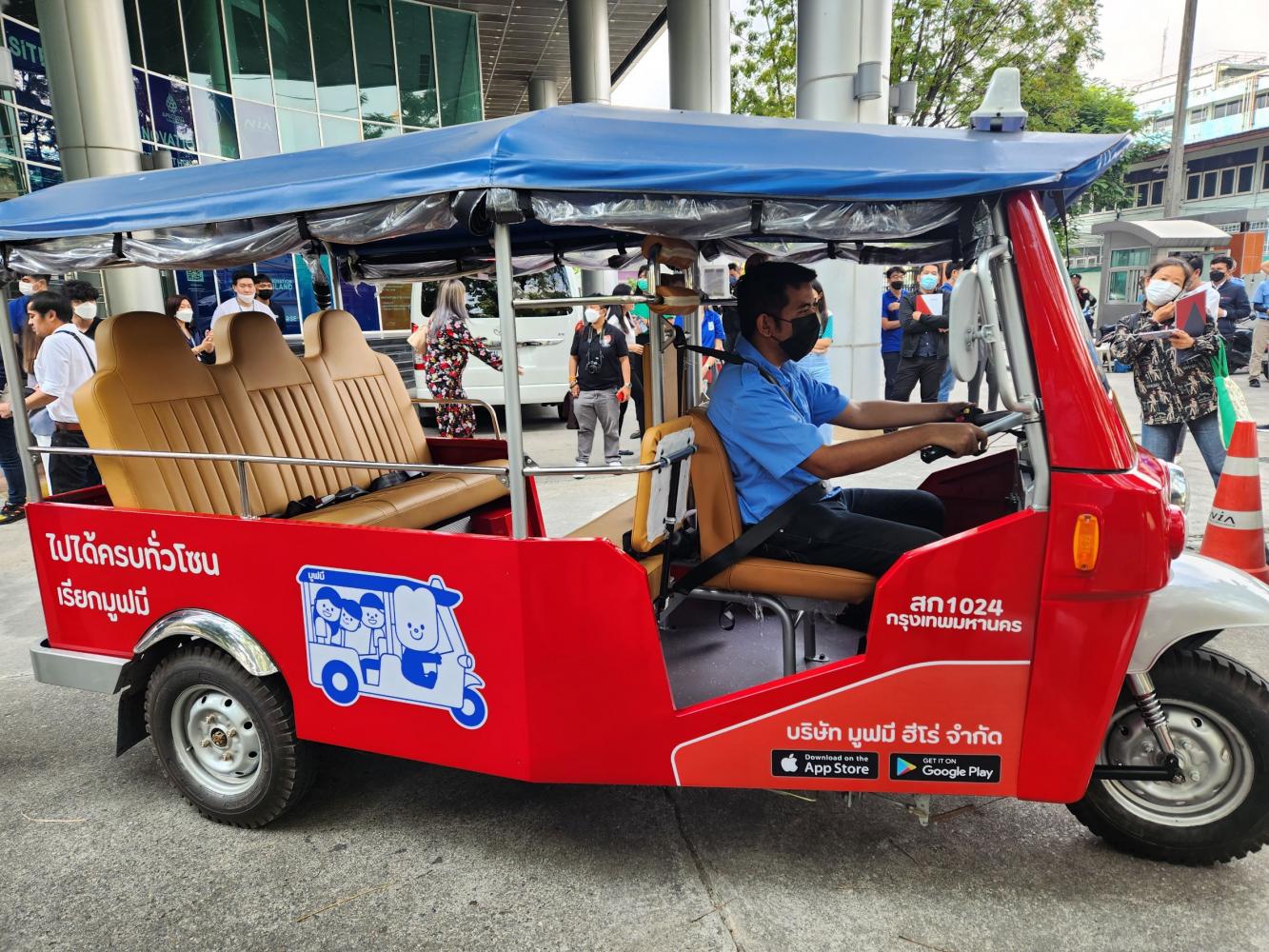
Urban Mobility Tech Co (UMT), a startup that developed and operates the MuvMi battery-run tuk-tuk service and its booking application, plans to increase the number of three-wheeled vehicles from 350 to 1,000 this year to meet higher demand from electric train commuters.
Electric tuk-tuks are gaining in popularity among people travelling between skytrain and subway systems to their homes and offices in Bangkok.
Up to 3.7 million people have used the service over the past five years.
The business expansion will require capital spending worth almost 200 million baht, said UMT co-founder and chief executive Krisada Kritayakirana.
UMT plans to expand the service to other cities upcountry.
MuvMi vehicles are designed to be bigger than traditional tuk-tuks to carry more passengers.
Drivers and passengers can use the MuvMi app to book the vehicles and manage queues. Service rates are displayed before passengers decide to use the service.
Companies and state agencies also use MuvMi tuk-tuks as shuttle buses for their staff.
Pipat Tangsiripaisan, UMT co-founder and chief engineer, said the company was granted two patents for its tuk-tuk design and chargers with solar power modules.
Under a longer-term plan, UMT plans to increase its fleet of electric tuk-tuks to betweren 4,000 and 5,000 in five years. It is confident electric vehicles (EVs), currently being promoted by the government, will become more popular.
Thai Rung Union Car, an original equipment manufacturer, has been hired to assemble MuvMi tuk-tuks.
"We may need to raise funding from venture capital funds if we continue to scale up our business," said Mr Pipat.
UMT started its business in 2016, with money from its founders and support from the National Innovation Agency (NIA).
The company delayed its plan to expand during the pandemic in 2020 and 2021. MuvMi tuk-tuks were mostly used to carry goods during the pandemic.
There are 30,000 registered tuk-tuks in Thailand, with 9,000 serving Bangkok.
NIA deputy executive director Vichian Suksoir said the agency plans to allocate 100 million baht this year to support startups in the EV category, with a maximum of 5 million baht granted to qualifying projects.







